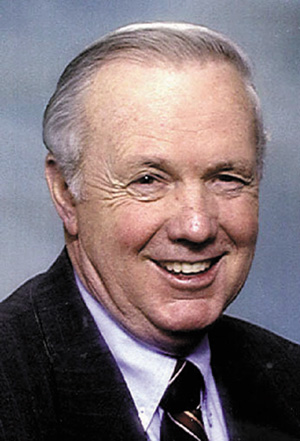No. 1237 -- A TELEVISION PROGRAM WITH CLASS!
No. 1237
Jim Davidson...NEWSPAPER COLUMN
A TELEVISION PROGRAM WITH CLASS!
You know you are getting old when your favorite television programs are reruns of the Lawrence Welk Show. Now, don’t laugh if you are a younger person, because after you read what I have to say about Lawrence and his music, you may want to start watching him too, if you don’t already.
My wife Janis and I love the Lawrence Welk Show, and we get it here on Saturday evenings at 6 p.m. on our local PBS station. Of course these are reruns, which means we get only the best. And they are all good, with first-rate quality, along with good-looking guys and gals who are terrific singers, dancers and musicians.
The thing we love about this program is that it has “class,” something very hard to find these days. You never hear anything suggestive or off-color in any way on any Lawrence Welk program. I can remember watching his show many years ago but had pretty well forgotten about him until Janis and I married back in 2015. She loves music, and is a great musician, so we started watching the show again. All this time I knew he was from North Dakota, and that he had ethnic parents, but that is about all. It was a blessing to do some research and learn all about his background.
Welk was born in 1903 in the German-speaking community of Strasburg, North Dakota, and passed away in 1992 at the age of 89. He was sixth of the eight children of Ludwig and Christiana Welk, Roman Catholic ethnic Germans who emigrated in 1882 from Odessa, Russian Empire (now Ukraine.) The family lived on a homestead that is now a tourist attraction. They spent the cold North Dakota winter the first year inside an upturned wagon covered with sod. Lawrence left school during the fourth grade to work full-time on the farm.
Lawrence decided on a career in music and persuaded his father to buy a mail-order accordion for $400 (equivalent to more than $5,000 today). He promised his father that he would work on the farm until he was 21 in repayment for the accordion. Any money he made elsewhere during that time, doing farm work or performing, would go to the family. He did not learn to speak English until he was 21 and never felt comfortable speaking it in public. This man became an iconic figure in the German-Russian community of the northern Great Plains — his success story personified the American dream.
On his 21st birthday, fulfilling his promise to his father, Welk left the family farm to pursue a career in music. During the 1920s he performed with various bands before forming an orchestra. He led big bands in North Dakota and eastern South Dakota and was also the station band for WNAX in Yankton, South Dakota. Over the years, his band and his career took many twists and turns, but always on an upward mobile basis. His work ethic and values would serve him well as he became an icon in the annals of American big-band music. His music was instantly recognizable, with his sound as “light and bubbly as champagne.” He would later have a “champagne lady” featured on his show, and Norma Zimmer had this distinction for many years.
So much to tell with so little space, but I hope I have whet your appetite just a little. Lawrence Welk’s music will cure what ails you, and provide a little touch of “class” for at least an hour of your week. Hope you have a station that carries it. Now, as Lawrence would say to close each program, “Keep a Song in Your Heart.”
---
(Editor’s Note: JIM DAVIDSON is an author, public speaker, syndicated columnist and founder of the Bookcase for Every Child project. Since its inception in 1995, Jim’s column has been self-syndicated to over 375 newspapers in 35 states, making it one of the most successful in the history of American journalism.)
